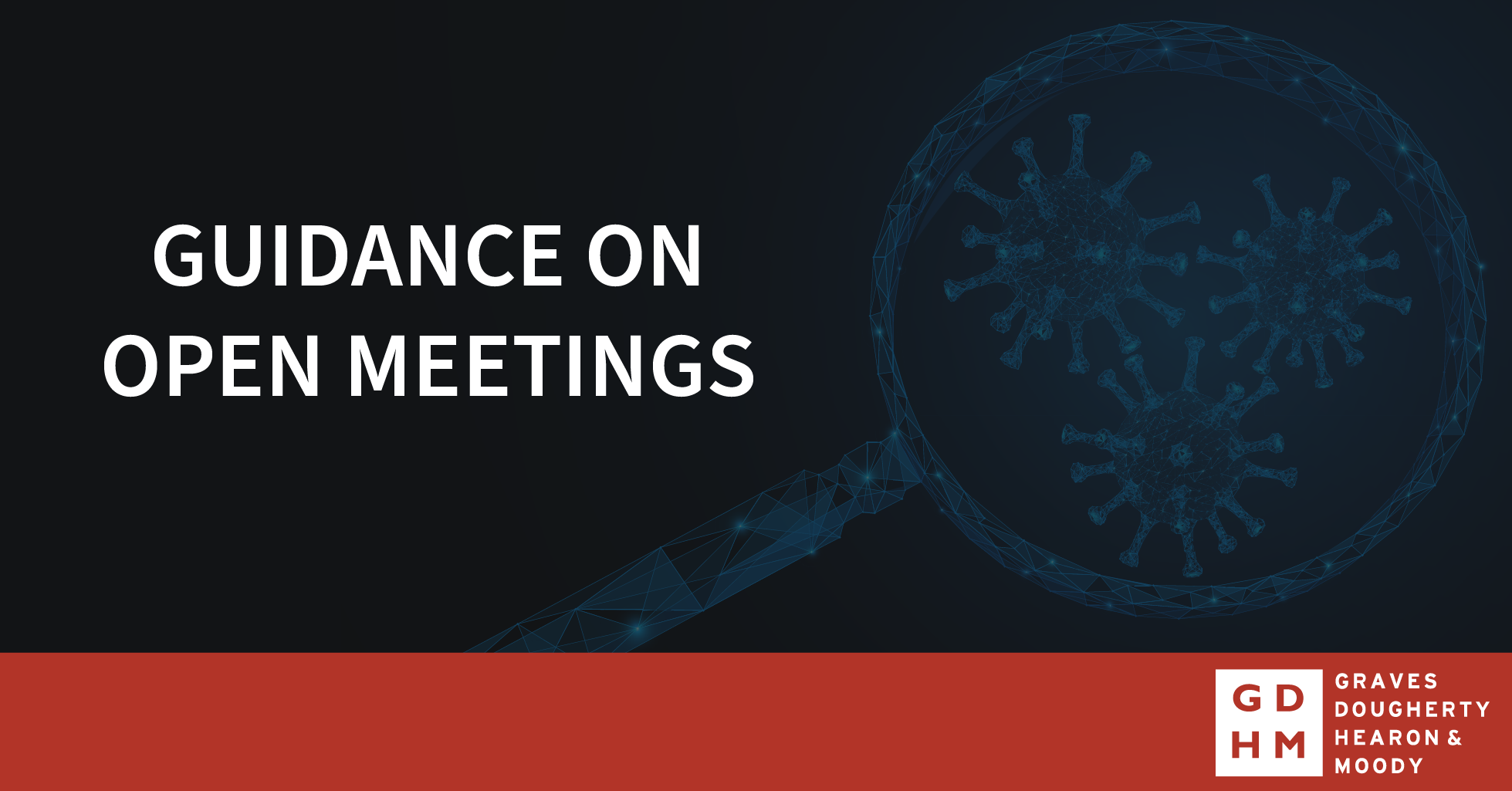
During this time of public health crisis, it is imperative that government remain functioning and responsive to the citizens it serves. Maintaining openness and transparency in government operations is essential to fulfilling this role.
In normal times, the Texas Open Meetings Act (TOMA) establishes the framework to ensure that government business is conducted in the open, rather than behind closed doors. But how can transparency be ensured while public health is a concern and self-isolation practices and shelter-in-place orders remain in effect?
In response to the current emergency, the Governor’s office has temporarily suspended some aspects of TOMA to allow governmental bodies to meet without physical proximity, while maintaining the public’s ability to view and participate in the meetings by telephone or video conference.
Graves Dougherty shareholder Jim Hemphill – a long-time board member and current president of the Freedom of Information Foundation of Texas (FOIFT) – noted that the Governor’s office consulted with FOIFT before implementing the new temporary rules.
Under TOMA’s normal rules, governmental bodies can conduct meetings at which some members appear via remote such as videoconferencing, but a quorum of the body is required to be physically present at the same location, and a physical location must be provided for members of the public to gather to observe and participate in the meeting.
The temporary suspension removes these restrictions, allowing members of the governmental body to be isolated in separate locations while still conducting business and allowing public participation. Also suspended is the requirement that a physical location be provided where the public can gather.
However, it remains crucially important that the public receive adequate notice of governmental body meetings, and retain the right to observe and participate in those meetings. Governmental bodies are required to:
- provide online written notice containing a public toll-free dial-in number or a free-of-charge video-conference link, as well as an electronic copy of any agenda packet, before conducting telephonic or video conference meetings;
- provide the public with access and a means to participate in those meetings, preferably through two-way audio or video connections; and
- provide the public with access to a recording of those meetings.
These suspensions will remain in effect until terminated by the Governor’s office or until the State’s disaster declaration is lifted or expires.
The Texas Attorney General’s office provides guidance for members of the public and governmental bodies regarding this interim order. The guidance is available here. The Freedom of Information Foundation of Texas also provides guidance; a recent blog post on the current TOMA adjustments is available here.
Graves Dougherty lawyers have long been on the forefront of advising members of the public, the press, and government officials about transparency laws and issues. If you have a question regarding TOMA, the Texas Public Information Act, or any other open government issue, you can contact Graves Dougherty using the form below. The following Graves Dougherty lawyers have regular experience with TOMA and are available to assist the public, press, and governmental bodies on open government issues: Bill Christian, Jim Hemphill, Pete Kennedy and Natasha Martin.